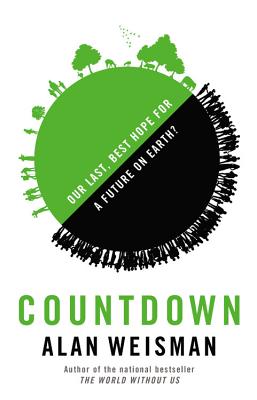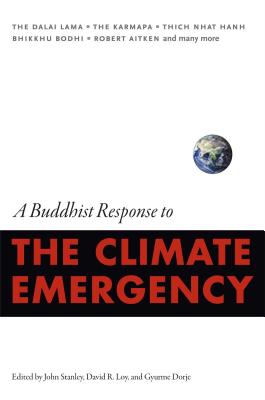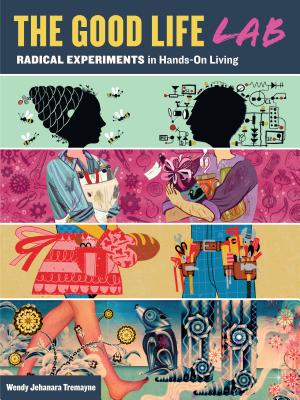When you are keenly attracted to what I'll call the
'sustainability
genre' of reading matter, it can seem feast or famine sometimes when
looking for real, serious sustenance in print, but I have to say
discovering the following books this summer really felt like hitting the
mother lode!
One, coming out September 24, 2013, is by Alan Weisman, well known for The World Without Us on what this world would be like if we humans all suddenly disappeared, leaving our civilization's debris behind. Here, Weisman follows that up with his latest work, Countdown: Our Last, Best Hope For a Future on Earth? and fearlessly takes on the potentials of a future where we don't disappear, but actually seriously grapple with facing that future's network of challenges that human expansion has wrought. Weisman cuts right to the chase regarding the overshoot of human growth on the planet, exploring the possibilities of and obstacles to shifting our dominant paradigm's habits to correct our most dangerous trajectories in order to achieve a more healthy and balanced way of living in sync with the biosphere.
Weisman had me hooked early on in Part One, where he dives in to the roiling Middle East, writing his erudite, yet almost lyrical descriptions of the quandaries of human contradictions writ large in a region hotly contested by its human inhabitants, beset with water, food, pollution, and political issues, plus it's a region that hosts an astoundingly significant avian wildlife corridor. This is one of the most urgent books I've read in a decade of urgency long denied, and the author so beautifully articulates the questions that so need to enter the mainstream of public discourse, it was no wonder this was not only the kickoff book for me to discover still more books to read (more on a couple of those in a minute), but also to exploring lifestyle changes that are 'outside the box' of business-as-usual. I don't know that I can say this book directly influenced my moving in August into a household that is consciously more in tune with nature and less consumption-oriented, but, empowered by good information, I do think we as human beings are better equipped to make choices more aligned with our personal and our species' survivability & thrive-ability. Which is why I heartily recommend Countdown to pretty much anyone with an interest in geography, world cultures, the environment and human potential for positive change.
Speaking of human potential for positive change, while enthusing about Countdown recently with someone, I wound up learning of another book that I've found to be immensely helpful for navigating my own changes, some well-reasoned and intentional, some by sheer accident, of the past year: A Buddhist Response to The Climate Emergency. Still not quite a card-carrying Buddhist who's officially 'taken refuge in the 3 jewels: the Buddha, the Dharma & the Sangha', but nevertheless finding myself more and more attracted to the depth of care espoused and lived by the Buddhists in my life and wanting to emulate that depth in my everyday mindfulness, I ordered a copy of this book edited by John Stanley, David Loy and Gyurme Dorje, and was delighted to find it begins and ends with the eloquence of two deservedly venerated Buddhist teachers, the 14th Dalai Lama and Thich Nhat Hanh.
A Buddhist Response to The Climate Emergency combines the sometimes beautiful, sometimes wrenching poetry of contemplation with the hard science of human impact on the planet that sustains us. The resultant mix of perspectives from numerous Buddhist leaders around the globe is a heartening assurance that more and more people are at work than one might assume, given the collective trance-like state of daily life and world affairs, and these folks are engaged in breaking that trance, overcoming delusion and taking seriously the need to end fossil fuel addiction and act out of genuine caring for each other and all life. So whether Buddhist or not, I highly recommend this book for anybody wanting to live more mindfully and more from the heart when it comes to earth-stewardship.
Lastly, because luckily I got to see the author when she came to the Tattered Cover on August 8th, I must recommend The Good Life Lab: Radical Experiments in Hands-On Living by Wendy Jehanara Tremayne.
Tremayne's disarming honesty about leaving a lucrative east-coast career to become a DIY enthusiast living off-grid with her equally inspired-by-Burning-Man husband in New Mexico and the poignancy of the inner paradigm-shifting of that transition literally had me in tears within the first few chapters. Having taken a stab myself at off-grid culture and not exactly having failed, but not exactly having thrived enough to continue either, I personally have found readjustment to Denver, my 'hometown', a bit daunting in the face of fond memories of open spaces, the Milky Way and a largely freegan, creative life experienced with like-minded souls. Living with chickens in the backyard helps. Sharing resources with several housemates and rarely feeling the need to shop for much of anything helps. And even though I am not in a position to launch into another experiment in radical hands-on-living in the New Mexican outback, I AM finding that more and more people I meet even here in the urban wilds are indeed finding numerous creative ways to transition out of the commodified default system in pretty significant ways and into a more interconnected, intuitive response to the changes anyone with eyes to see can't miss. Bit by bit we partake more and more in our own 'gift-economy' whether or not we ever make it to a Burning Man event, and incrementally we get closer to real freedom from the siren songs of the advertising world that tell us we need more to be happy, when what we really need is just to find our own way of doing what needs to be done with an increase in freedom from the constant intermediary of buying and selling things.....
Tremayne quotes Buckminster Fuller in her 'Wisdom' section (right before a section loaded with great DIY projects!):
"The things to do are: the things that need doing, that you see need to be done, and that no one else seems to see need to be done. Then you will conceive your own way of doing that which needs to be done - that no one else has told you to do or how to do it. This will bring out the real you that often gets buried inside a character that has acquired a superficial array of behaviors induced or imposed by others on the individual."
Part memoir, part philosophical manifesto, part freeganomics manual, part guidebook on projects galore with plenty of inspiration to cultivate the gumption and faith to try them, this is one infectiously playful, creative and hopeful journey that deserves wide exposure.... Check it out & journey forward!
~ Lynn
You can find more of Lynn's reviews in The Denver Voice.
One, coming out September 24, 2013, is by Alan Weisman, well known for The World Without Us on what this world would be like if we humans all suddenly disappeared, leaving our civilization's debris behind. Here, Weisman follows that up with his latest work, Countdown: Our Last, Best Hope For a Future on Earth? and fearlessly takes on the potentials of a future where we don't disappear, but actually seriously grapple with facing that future's network of challenges that human expansion has wrought. Weisman cuts right to the chase regarding the overshoot of human growth on the planet, exploring the possibilities of and obstacles to shifting our dominant paradigm's habits to correct our most dangerous trajectories in order to achieve a more healthy and balanced way of living in sync with the biosphere.
Weisman had me hooked early on in Part One, where he dives in to the roiling Middle East, writing his erudite, yet almost lyrical descriptions of the quandaries of human contradictions writ large in a region hotly contested by its human inhabitants, beset with water, food, pollution, and political issues, plus it's a region that hosts an astoundingly significant avian wildlife corridor. This is one of the most urgent books I've read in a decade of urgency long denied, and the author so beautifully articulates the questions that so need to enter the mainstream of public discourse, it was no wonder this was not only the kickoff book for me to discover still more books to read (more on a couple of those in a minute), but also to exploring lifestyle changes that are 'outside the box' of business-as-usual. I don't know that I can say this book directly influenced my moving in August into a household that is consciously more in tune with nature and less consumption-oriented, but, empowered by good information, I do think we as human beings are better equipped to make choices more aligned with our personal and our species' survivability & thrive-ability. Which is why I heartily recommend Countdown to pretty much anyone with an interest in geography, world cultures, the environment and human potential for positive change.
Speaking of human potential for positive change, while enthusing about Countdown recently with someone, I wound up learning of another book that I've found to be immensely helpful for navigating my own changes, some well-reasoned and intentional, some by sheer accident, of the past year: A Buddhist Response to The Climate Emergency. Still not quite a card-carrying Buddhist who's officially 'taken refuge in the 3 jewels: the Buddha, the Dharma & the Sangha', but nevertheless finding myself more and more attracted to the depth of care espoused and lived by the Buddhists in my life and wanting to emulate that depth in my everyday mindfulness, I ordered a copy of this book edited by John Stanley, David Loy and Gyurme Dorje, and was delighted to find it begins and ends with the eloquence of two deservedly venerated Buddhist teachers, the 14th Dalai Lama and Thich Nhat Hanh.
A Buddhist Response to The Climate Emergency combines the sometimes beautiful, sometimes wrenching poetry of contemplation with the hard science of human impact on the planet that sustains us. The resultant mix of perspectives from numerous Buddhist leaders around the globe is a heartening assurance that more and more people are at work than one might assume, given the collective trance-like state of daily life and world affairs, and these folks are engaged in breaking that trance, overcoming delusion and taking seriously the need to end fossil fuel addiction and act out of genuine caring for each other and all life. So whether Buddhist or not, I highly recommend this book for anybody wanting to live more mindfully and more from the heart when it comes to earth-stewardship.
Lastly, because luckily I got to see the author when she came to the Tattered Cover on August 8th, I must recommend The Good Life Lab: Radical Experiments in Hands-On Living by Wendy Jehanara Tremayne.
Tremayne's disarming honesty about leaving a lucrative east-coast career to become a DIY enthusiast living off-grid with her equally inspired-by-Burning-Man husband in New Mexico and the poignancy of the inner paradigm-shifting of that transition literally had me in tears within the first few chapters. Having taken a stab myself at off-grid culture and not exactly having failed, but not exactly having thrived enough to continue either, I personally have found readjustment to Denver, my 'hometown', a bit daunting in the face of fond memories of open spaces, the Milky Way and a largely freegan, creative life experienced with like-minded souls. Living with chickens in the backyard helps. Sharing resources with several housemates and rarely feeling the need to shop for much of anything helps. And even though I am not in a position to launch into another experiment in radical hands-on-living in the New Mexican outback, I AM finding that more and more people I meet even here in the urban wilds are indeed finding numerous creative ways to transition out of the commodified default system in pretty significant ways and into a more interconnected, intuitive response to the changes anyone with eyes to see can't miss. Bit by bit we partake more and more in our own 'gift-economy' whether or not we ever make it to a Burning Man event, and incrementally we get closer to real freedom from the siren songs of the advertising world that tell us we need more to be happy, when what we really need is just to find our own way of doing what needs to be done with an increase in freedom from the constant intermediary of buying and selling things.....
Tremayne quotes Buckminster Fuller in her 'Wisdom' section (right before a section loaded with great DIY projects!):
"The things to do are: the things that need doing, that you see need to be done, and that no one else seems to see need to be done. Then you will conceive your own way of doing that which needs to be done - that no one else has told you to do or how to do it. This will bring out the real you that often gets buried inside a character that has acquired a superficial array of behaviors induced or imposed by others on the individual."
Part memoir, part philosophical manifesto, part freeganomics manual, part guidebook on projects galore with plenty of inspiration to cultivate the gumption and faith to try them, this is one infectiously playful, creative and hopeful journey that deserves wide exposure.... Check it out & journey forward!
~ Lynn
You can find more of Lynn's reviews in The Denver Voice.




No comments:
Post a Comment